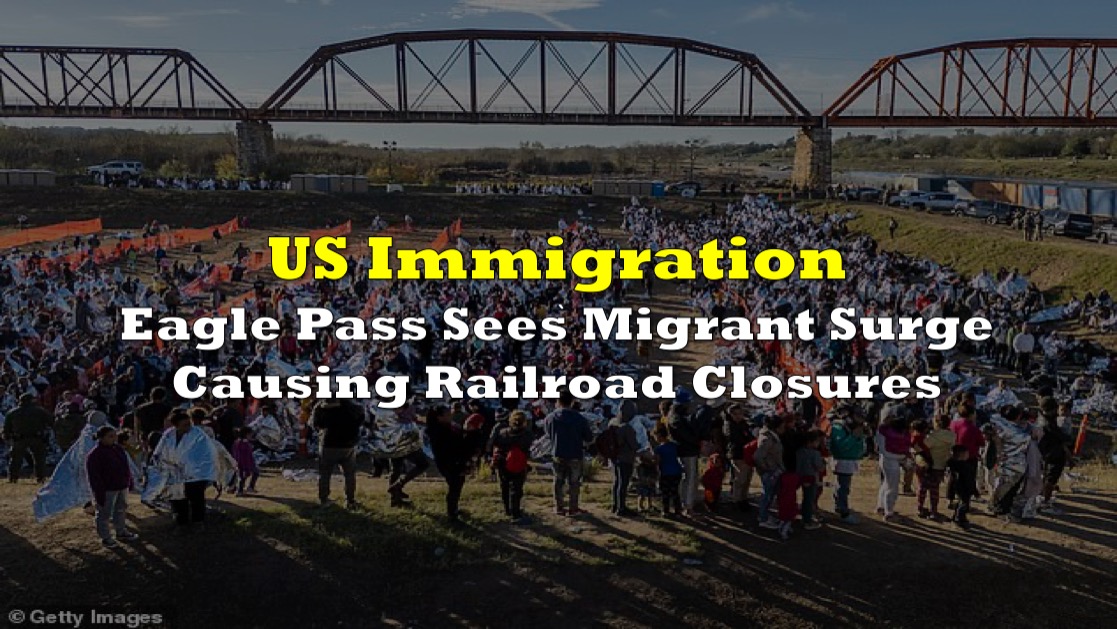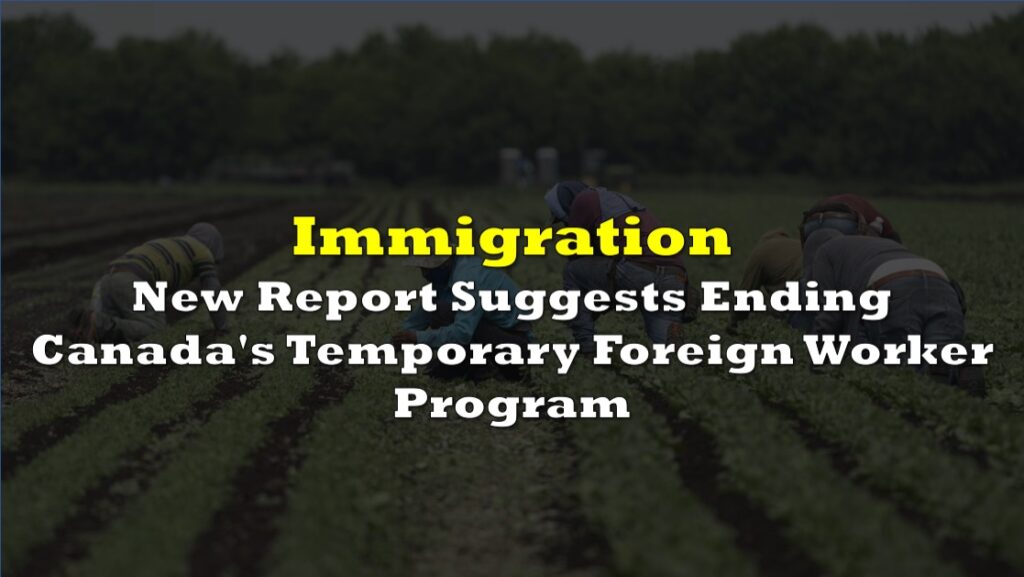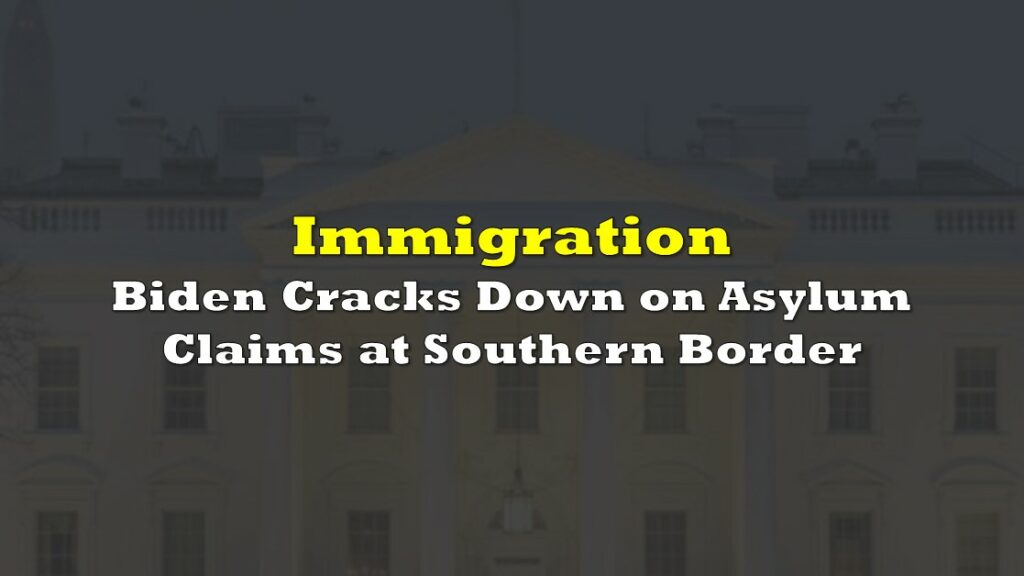The southern border of the United States faced an overwhelming influx of migrants, reaching an unprecedented high of more than 12,600 encounters within the last 24 hours, according to Customs and Border Protection (CBP) sources.
Disturbingly, this record-breaking figure is believed to be significantly underestimated due to thousands still awaiting processing in Eagle Pass, a situation that exemplifies the complex challenges faced by border authorities.
BREAKING: Per CBP sources, there were more than 12,600 migrants encountered at the southern border in the last 24 hours, the highest single day total ever recorded. The true number is *significantly* higher because there are thousands still waiting to be processed in Eagle Pass…
— Bill Melugin (@BillMelugin_) December 19, 2023
The official statistics from the past day include over 11,000 Border Patrol apprehensions of illegal immigrants and more than 1,600 migrants encountered at CBP ports of entry, surpassing the previous record set just two weeks ago at 12,000 encounters. This surge has prompted Border Patrol agents to cease patrolling the US-Mexico border, leading to what some are calling an ‘absolute collapse’ in security.
Eagle Pass, a popular migrant crossing spot accommodating only 30,000 residents, witnessed an astonishing 14,000 migrants in the last 24 hours alone, causing a dire situation for the local community. U.S. Congressman Tony Gonzales expressed his concern, sharing a video depicting a sea of migrants waiting under a bridge in Eagle Pass. Gonzales emphasized the severity of the situation, stating, ‘14,000+ crossed ILLEGALLY yesterday & 26,000+ already in custody – the HIGHEST in US history.’
🚨BREAKING: This morning in my district in Eagle Pass.
— Rep. Tony Gonzales (@RepTonyGonzales) December 19, 2023
These are historic numbers. I am in contact with local officials & law enforcement who all say this situation is DIRE. https://t.co/e752kgSgZ1
The impact of this crisis extends beyond the humanitarian aspects, as the city’s international bridges have been closed, costing locals $15,000 a day. Eagle Pass heavily relies on tolls collected from these international bridge crossings, constituting about 60 percent of the city’s revenue. With only 58 uniformed police officers, many of whom are assisting Border Patrol, the city faces an immense challenge.
Republican Governor Greg Abbott signed a law allowing local police to arrest migrants, but its enforcement is deferred until next year. Meanwhile, leaders in Democratic El Paso are actively challenging a similar law, highlighting the political complexities surrounding the issue.
The situation in Eagle Pass has prompted Mayor Rolando Salinas to plead with the federal government for assistance. He expressed frustration, stating, ‘We have silence from the President, silence from the Vice President, silence from a lot of politicians who don’t think this is a real issue.’
Shipment concerns
The crisis is now taking a toll on trade flows between the U.S. and Mexico, as U.S. Customs and Border Protection shut down two rail crossings in Eagle Pass and El Paso, impacting tens of billions of dollars in goods each year.
The law enforcement agency cited the need to redirect personnel to address a recent resurgence of smuggling organizations utilizing freight trains to move migrants through Mexico. The closures have prompted warnings from industry leaders, with Ian Jefferies, CEO of the Association of American Railroads, emphasizing, “The urgency of reopening these crossings and restoring rail service between the two nations cannot be overstated.”
Union Pacific and BNSF, a division of Warren Buffett’s Berkshire Hathaway, find themselves directly impacted by the closures. Union Pacific, which must hold 60 trains each day, equating to almost 4,500 rail cars, highlighted the strain on its cross-border business. Various goods, including grain, beer, dry food, cars, car parts, consumer goods, metals, and cement, are now stranded in Mexico.
Roughly 45% of all rail cars moving to and from Mexico cross through El Paso and Eagle Pass – there isn’t enough capacity at the other four gateways to reroute them. Union Pacific urges the Eagle Pass and El Paso border crossings be reopened immediately. This is impacting:
— Union Pacific (@UnionPacific) December 18, 2023
•… pic.twitter.com/iDPVhkEUTF
The closures come amid a broader struggle to process a record 2.5 million “encounters” at the US southern border in the 12 months to the end of September, involving both asylum seekers and those detained after an unauthorized crossing.
BNSF expressed disappointment over the disruption, emphasizing the increasing impact on critical commodities such as automobiles, industrial products, and grain with each day of closure. From January to October, rail freight trade through Eagle Pass and El Paso amounted to $28.8 billion, covering a diverse range of commodities and consumer goods.

The potential ripple effect extends beyond the immediate disruption, as Bernstein analyst David Vernon warns of threats to the North American rail network. The closures could lead to stress on the Canadian Pacific Kansas City railroad, the busiest rail border crossing through Laredo, Texas.
Mexico’s reliance on US-grown corn and other grains, mainly transported by rail, raises concerns about potential shortages as livestock businesses may run short of feed due to the bridge closures. The National Grain and Feed Association and the North America Export Grain Association have already highlighted the critical tightness in feeding supplies for several livestock feeders in Mexico.
Information for this briefing was found via Daily Mail, Financial Times, and the sources mentioned. The author has no securities or affiliations related to this organization. Not a recommendation to buy or sell. Always do additional research and consult a professional before purchasing a security. The author holds no licenses.









